It doesn’t matter whether you are a first-time parent or not, having a baby means sleepless nights and constant worries. While experience can make it easier when it comes to your little one’s health and safety, there’s nothing wrong with erring on the side of caution. Take the time to run through these tips; you may even learn something new.
Treat baby with care
A newborn baby is fragile and if you are not used to handling one, you may feel worried or uncomfortable. However, as long as you exercise some simple precautions, there is nothing to fear. The top things to keep in mind are:
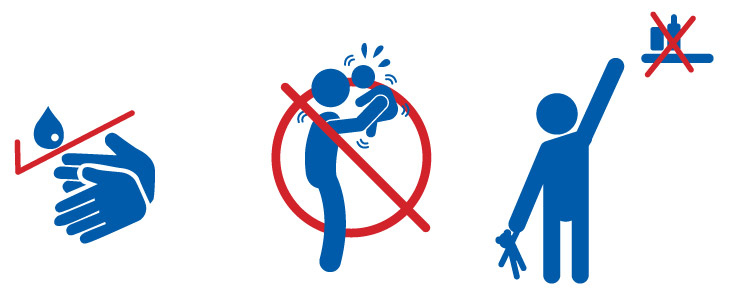
- Newborns have a very immature immune system, which means they are more susceptible to infection. Before you touch or handle your newborn, wash your hands with soap and water or use a hand sanitizer. Make sure that anyone else who handles your newborn takes similar precautions.
- Newborns are also susceptible to brain damage if shaken too vigorously. This means you need to be cautious and avoid shaking them, regardless of whether it was done in fun or out of frustration. Over vigorous shaking can cause bleeding in the brain or may even lead to death. Reconsider rough play with baby.
- Newborns have neck muscles that are not well-developed enough to support their head, so whenever you pick a newborn up, always support his head and neck. You may do so by cradling his head when you are carrying him or supporting his head when holding him upright or when you lay him down.
- Keep baby away from relatives or friends who are sick. Your baby’s immune system is not adapted to handle serious infections.
- Always take notice of your baby’s surroundings to ensure there is nothing that can endanger your baby. These include falling hazards (e.g. when changing his diaper on a high table, stairs should have safety gates, etc.), choking hazards (e.g. plastic bags or other small objects should be kept out of a child’s reach, etc.), electrical hazards (e.g. cover all exposed electrical points, cables should be in good condition, etc.), and physical hazards (e.g. furniture with sharp edges/corners should be covered, balconies and low windows should be closed and locked, etc.).
Day-to-day safety
To minimise the possibility of injury to your baby, make sure you take extra precautions. Don’t take it for granted that he will be alright if left to his own devices – remember that he is still a baby and cannot take care of himself! His safety is entirely dependent on you, so make it a point to take special care in finding out what you can do for his safety. Some of the pertinent things you will need to bear in mind are:
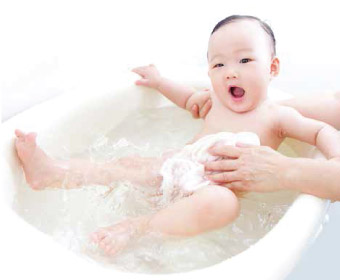
- When you bathe your newborn, always ensure that the surrounding area is at a comfortably warm temperature to prevent him from feeling cold. The bath water should be warm and not cold or tepid, and you should never ever leave him unattended in a bath tub for any reason! Accidental drowning can happen so make sure that you are there with him at all times. If there is any reason that you need to leave the bathroom, wrap your baby in a towel and take him with you.
- If you decide to circumcise your newborn, ensure that you check the circumcised area frequently. See your baby’s paediatrician immediately if it does not heal properly.
- It is also important that you take good care of his umbilical stump, by keeping it clean and dry as much as possible. That means you should avoid submerging it in water until the stump comes off on its own, and one way to keep it clean is by using rubbing alcohol to swab the area. Your baby’s umbilical stump will change colour over time – from yellow to brown or black. Don’t worry as this is normal, but do consult your baby’s paediatrician if that area becomes reddened or if there is a foul odour or discharge.
- If you have heard of sudden infant death syndrome (SIDS), then you will know that it is important to let baby sleep on his back.
Care should also be taken to ensure that there are no loose materials (e.g. fluffy bedding, quilts, sheepskins, stuffed animals, pillows, etc.) left in his crib as they may suffocate your baby. Be sure to alternate the position of his head every night to prevent a flat spot from developing on one side of his head.
Seeing the outside world
It would simply be impossible for you to keep your baby ‘quarantined’ at home! Go ahead and bring him out to see the world – it can be good for both of you. However, make it a point to ensure that he is placed securely in his pram/carrier/stroller at all times. Remember that getting him from one point to another is not a race and limit any rough or bouncy journeys, as much as possible (e.g. pushing a stroller across a rough pavement may ‘shake things up’ too much, especially for a newborn).
Another important safety aspect that should not be neglected is the use of a suitable car seat for your baby. Never let your baby travel without using a car seat. Always use one that is appropriate for his age and ensure that it is used correctly.
Lastly, before you take your little one out, take note of the following:
- Is it too hot or cold? Make sure he is dressed appropriately. Bring a portable fan if you’re going somewhere hot and don’t leave him out under the sun too long. If you head out to somewhere cold, make sure to dress him warmly.
- Be prepared! Make sure you bring along a bag containing all the necessary baby equipment, e.g. diapers, extra clothing, wet wipes, milk bottle if not breastfeeding, etc.
- Is he up for it? Don’t take him out if he is not feeling well as you may cause his condition to worsen.
Baby’s skin
A newborn usually has skin that is wrinkly and covered by a protective covering that will peel off on its own during the first week of his life. You don’t have to rush the process by rubbing it or treating it with lotions, creams, or medication.
Avoid using baby products in his early months as his immune system is still developing. Take care to ensure that his clothes are washed before you let him wear them. Be certain to use laundry detergents that are babyfriendly – they must be fragrance- and dye-free. Always make it a point to wash all of his clothes, bedding, and blankets separately. These precautions are especially important if your family has a history of skin problems, allergies, or asthma – protecting his immune system at this early stage also protects him from allergens. Remember, your newborn baby’s skin is soft and sensitive, so keep it hydrated by bathing him in warm water for no more than five minutes. If you want, you can apply some baby lotion or moisturiser immediately after his bath and while his skin is still damp.
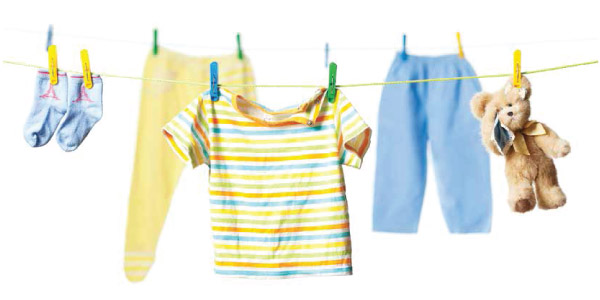
Possible skin problems
One of the most common skin problems your baby will likely encounter is diaper rash. It is usually visible as a reddish area of skin around your baby’s diaper area, most often the result of skin irritation due to diapers. It may be caused by diapers that:
- are too small or fit too tightly,
- have been worn for too long
You may alleviate the problem by allowing his diaper area to ‘breathe’ (let it stay in open air instead of being confined in diapers as much as possible). You should also make it a point to change his diaper as soon as possible – avoid letting him wear a wet diaper for too long.
Other common skin problems that your baby may face include atopic dermatitis or eczema, cradle cap, milia (white bumps on the skin), yeast infections (on the tongue and mouth, or on his diaper area), jaundice, and sunburn.
Protection from deadly diseases
Always ensure that your baby receives all his compulsory vaccines that are provided under the National Immunisation Programme (NIP). The Ministry of Health Malaysia has introduced the NIP as part of its effort to prevent most major childhood diseases (like tuberculosis, diphtheria, pertussis, tetanus, measles and congenital rubella syndrome). These vaccinations are provided by the government for children at different ages, at no cost.
However, there are other recommended vaccines in Malaysia which are not mandatory and not part of the NIP. These recommended vaccines have been proven to be highly effective in preventing potentially deadly complications from infections caused by the pneumococcus bacteria, Neisseria meningitidis, and rotavirus.
Vaccines are safe
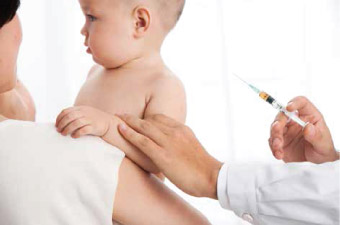
Vaccines undergo rigorous and extensive safety testing by the US Food and Drug Administration (FDA) before they are released, and this process takes years. This ensures that licensed vaccines are safe for use. In fact, once a vaccine is in use, the US Centers for Disease Control (CDC) and FDA continuously monitor it for any unfavourable outcomes via the Vaccine Adverse Event Reporting System (VAERS). If anything is detected, further investigations are initiated. Depending on the gravity of the situation, reactions may include additional warnings printed on the vaccine’s labels/packaging or even revoking the vaccine’s licence.
However, it should be noted that just like any medication, vaccines may cause some side effects. Most of the time, these effects are very minor (like soreness where the shot was given, irritability, or a low-grade fever) and typically last for only a few days. It is exceedingly rare to encounter serious reactions to vaccines.
If you have heard that vaccines cause autism, then rest assured that this is a myth that has no factual basis. The link between autism and vaccination resulted from a fallacious British study done and published in 1998. This publication by Dr Andrew Wakefield has been retracted by the journal publishing it and, 10 of the 12 authors withdrew from having anything to do with the study. This caused mumps, measles and rubella (MMR) vaccination rates in the UK to drop drastically, resulting in an increase in measles with many deaths in the ensuing years. Monitoring in numerous countries has not found any link between MMR vaccination and increased childhood autism.
The benefits of getting vaccinated cannot be emphasised enough. It is not only a proven method of controlling (and even eradicating) disease, but it is also the most successful and cost-effective way to control disease. Prevention is better than cure! Furthermore, it helps minimise or even eliminate the mental/physical trauma of the suffering caused by an infectious disease. It is undoubtedly the single, most effective method to protect everyone, from babies, children, pregnant women, cancer patients and even the immunocompromised, by the herd effect.
Did you know?
Herd effect is a form of immunity that occurs when vaccination of a significant portion of a population provides a measure of protection for individuals who have not been vaccinated or developed immunity.
Red Flags
Now that you know about the basics of keeping your baby safe, you should also be aware of certain signs that should not be ignored. These signs can alert you to the possibility that your little one has caught a serious illness. The following danger signs need professional assessment and treatment by your baby’s paediatrician:
- A fever above 38°C
- Unexplained rashes, especially if he has a fever too
- Diarrhoea for more than 12 hours
- Repeated vomiting or vomiting for more than 12 hours
- Blood in his stool or vomit
- Foreign objects stuck in his nose, ear, mouth, or any other body orifice
- Cries persistently, or if he is whimpering or moaning
- Refuses to feed or sudden drop in appetite
- Sunken fontanelle (the soft spots on his head), especially if he also has dry lips, hardly wets his diapers, cries without any tears, or his urine is dark yellow – this may indicate that he is dehydrated
- Sudden mood change, i.e. he is unusually irritable and moody
- His eyes are pink, watery, or ‘sticky’, which may indicate an eye infection
- Unexplained discharge from his ears, eyes, navel, or genitals



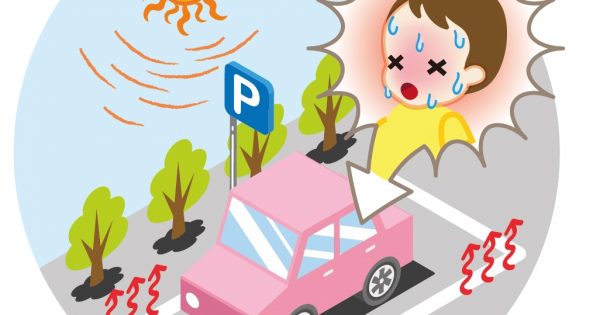
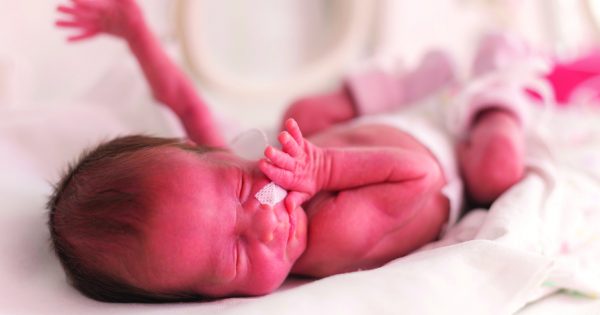

Comments